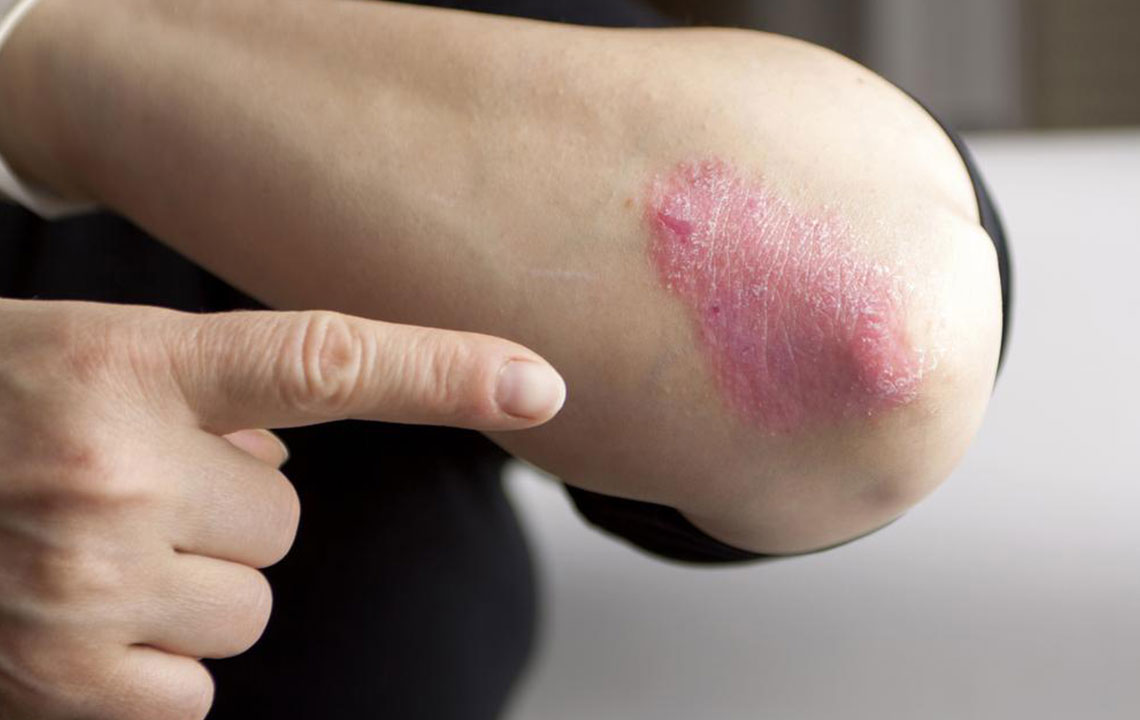Comprehensive Guide to Effective Management of Chronic Plaque Psoriasis
This comprehensive guide explores effective management strategies for chronic plaque psoriasis, covering symptoms, diagnosis, treatments, and lifestyle modifications. It emphasizes personalized care, combination therapies, and ongoing research advances to improve patient outcomes and quality of life. Understanding these approaches helps patients and healthcare providers develop effective, tailored treatment plans for this complex autoimmune skin condition.

Comprehensive Strategies for Managing Chronic Plaque Psoriasis Effectively
Chronic plaque psoriasis stands out as one of the most prevalent autoimmune skin conditions worldwide. Its impact extends beyond mere skin discomfort, influencing physical well-being, mental health, and overall quality of life. This persistent and often relapsing disease primarily manifests through thick, scaly patches commonly located on the hands, feet, elbows, knees, scalp, and skin folds. Understanding the underlying causes, available treatments, and lifestyle modifications is essential for managing this complex condition effectively and improving patients' daily lives.
Psoriasis is a chronic autoimmune disorder characterized by an overproduction of skin cells, leading to rapid cell turnover that results in the formation of raised, scaly plaques. These plaques are often itchy, red, and sometimes painful, affecting various parts of the body. The condition's fluctuating nature means symptoms can flare up periodically, influenced by environmental, genetic, and immune system factors. While the exact cause remains elusive, researchers have established that genetics and immune dysfunction play pivotal roles. Additionally, triggers such as stress, infections, skin injuries, certain medications, and environmental factors can precipitate or worsen outbreaks. Despite being non-contagious, psoriasis significantly impacts emotional health, often leading to social withdrawal and psychological distress.
Recognizing the Symptoms and Diagnosing Plaque Psoriasis
Common symptoms include persistent itching, redness, inflamed skin, and silvery-white plaques that may crack and bleed. These lesions frequently appear symmetrically and can vary in size and severity. The condition can interfere with daily activities, sleep, and social interactions, subsequently affecting mental health and emotional well-being. Diagnosis typically involves a thorough clinical examination, review of family history, and sometimes a skin biopsy to exclude other dermatological conditions with similar presentations. Accurate diagnosis is crucial for effective management.
Medical Treatments for Managing Chronic Plaque Psoriasis
Topical Therapies
Topical treatments form the foundation for mild to moderate psoriasis management. These include moisturizers, vitamin D3 analogs like calcipotriol, corticosteroids, salicylic acid, and coal tar preparations. Moisturizers help maintain skin hydration, reduce scaling, and minimize itching. Vitamin D3 analogs regulate skin cell growth and proliferation, providing anti-inflammatory effects. Corticosteroids effectively reduce inflammation and suppress immune responses but are used judiciously to prevent skin thinning. Salicylic acid helps loosen scales and promotes lesion removal, especially when used with other agents. Proper application protocols and patient adherence significantly improve outcomes.
Phototherapy (Light Therapy)
Phototherapy involves exposing affected skin to controlled ultraviolet (UV) light under medical supervision. Options include UVB broadband or narrowband therapy, and in some cases, UVA combined with psoralen (PUVA). Regular sessions can reduce inflammation, slow skin cell proliferation, and induce remission. Advances in home phototherapy devices offer convenience, though professional assessment ensures safety and optimal results. This therapy is often suitable for moderate to severe cases unresponsive to topical treatments.
Systemic Medications for Severe Cases
When topical and light therapies are insufficient, systemic options are considered. These include oral or injectable drugs such as cyclosporine, methotrexate, retinoids (like acitretin), and newer biologic agents targeting specific immune pathways (e.g., TNF-alpha inhibitors, IL-17 inhibitors). These medications work by modulating or suppressing immune responses, reducing skin inflammation, and slowing cell turnover. Because of potential side effects, systemic treatments require close medical monitoring and are typically reserved for moderate to severe psoriasis or cases involving significant skin or joint involvement (psoriatic arthritis).
Combination and Personalized Treatment Approaches
Combining different therapies enhances treatment efficacy, minimizes side effects, and addresses individual patient needs. For example, topical agents can be used alongside phototherapy or biologics, with lower doses of systemic medications. Personalized management plans consider disease severity, duration, patient comorbidities, lifestyle, and personal preferences. Regular follow-up ensures adjustments to therapy based on response and tolerability. Multidisciplinary approaches, including psychological support, are vital for comprehensive care.
Challenges and Considerations During Treatment
Managing chronic psoriasis presents several challenges. Patients may experience side effects such as skin dryness, irritation, or pigmentation changes from topical agents. Systemic medications carry risks of hepatotoxicity, immunosuppression, or cardiovascular issues, requiring vigilant monitoring. Psychologically, many individuals struggle with self-esteem, depression, anxiety, and social stigma associated with visible skin lesions. Adherence to treatment regimens can be affected by inconvenience or side effects, impacting overall effectiveness. Lifestyle modifications, including weight management, a healthy diet rich in anti-inflammatory foods, regular exercise, stress management, and quitting smoking, can greatly improve treatment outcomes. Recent advances in research focus on genetic factors, novel biologics, and targeted therapies, promising better control in the future. With consistent medical care and lifestyle adjustments, many patients achieve significant symptom relief and improved quality of life.





